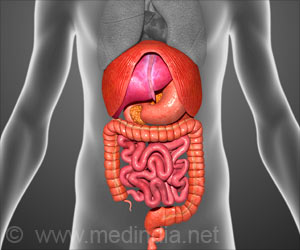Psychosocial and physical stress causes cell free DNA (cfDNA) release, with varying responses in men and women. cfDNA levels in blood and saliva differ by stress type.
- Men had higher cell free nuclear DNA (cf-nDNA) levels due to longer, intense exercise, while women reached limits faster with lower stress markers
- More cfDNA is released, broken down slower, and stays in circulation longer under stress
- cfDNA released due to stress shows promise as a biomarker but requires more validation and testing methods
Cell-free DNA release following psychosocial and physical stress in women and men
Go to source). During stress, two types of cfDNA – nuclear DNA (cf-nDNA) and mitochondrial DNA cell free mitochondria DNA (cf-mtDNA) are released into the bloodstream and saliva. The DNA levels were measured using quantitative polymerase chain reaction (qPCR).
Approximately 284 million people worldwide have an #anxiety disorder. #stress #cfDNA #medindia’
How cf-nDNA Levels Changed in Blood Plasma
The study found that both men and women had a similar pattern of cf-nDNA release before and after experiencing stress. However, the amount of DNA released depended on the type of stress.- Mental Stress (Psychosocial Stress Task): Using the Trier Social Stress Test (TSST) researchers found a small increase (1.1 times) in cf-nDNA levels in both men and women. Women taking hormonal birth control had 1.3 times higher levels, whereas those not using birth control showed a slight decrease to 0.9 times.
- Physical Stress (Exercise on a Bicycle): The cfDNA levels increased about 2.2 times overall. The increase was high in men with a 3.4-fold rise. Women who are not using birth control had a 1.6 times increase in cfDNA levels after exercise and 1.5 times for those on birth control.
Why Stress Affects Men and Women Differently
The smaller response to mental stress could be that many participants were university students, some studying psychology, who may have already been familiar with the stress test. Also, due to COVID-19 restrictions, participants wore face masks during the test, making the situation feel less stressful.Men had higher levels of cf-nDNA than women for physical stress because men were able to exercise at a higher intensity and for a longer time. Women on birth control exercised for shorter durations, which may have led to lower release of cf-nDNA and a bicycle ergometer causes less physical stress than running on a treadmill.
In this study, women reached their physical limits faster than men and had lower salivary cortisol and lower cf-nDNA levels overall. Some research also suggests that female sex hormones might affect cfDNA release after exercise.
How cf-mtDNA Levels Changed in Blood Plasma and Saliva
Women using hormonal birth control had the highest levels of cf-mtDNA after both mental and physical stress. However, the data was not sufficient to conclude and the reason behind cf-mtDNA release during stress is still unclear. The researchers also examined cf-nDNA and cf-mtDNA levels in saliva, in addition to blood. Surprisingly, the cfDNA levels in saliva were much higher than in plasma (blood), with cf-nDNA being about 60 times higher and cf-mtDNA about 40 times higher at baseline (before stress exposure).The cf-nDNA levels in saliva decreased immediately after both types of stress but increased in the meantime making it difficult to conclude whether it is linked to stress. It is still unclear if these changes were directly linked to stress.
The cf-mtDNA level in saliva increased after 15 minutes of the mental stress task. After physical stress, cf-mtDNA decreased. These findings suggest that cf-mtDNA may not be a promising marker of stress in saliva.
cfDNA and Stress: What Increases Its Levels?
There are other possibilities for the increased levels of cf-nDNA and cf-mtDNA. The increase could be due to several factors:- Increased Release: The body might release more cfDNA as a stress response.
- Reduced Breakdown: The enzymes that normally break down cfDNA like DNases may not be as active during stress.
- Slower Clearance from Blood: cfDNA may stay in blood circulation due to reduced elimination.
Reference:
- Cell-free DNA release following psychosocial and physical stress in women and men - (https://pubmed.ncbi.nlm.nih.gov/39863589/)
Source-Medindia
















